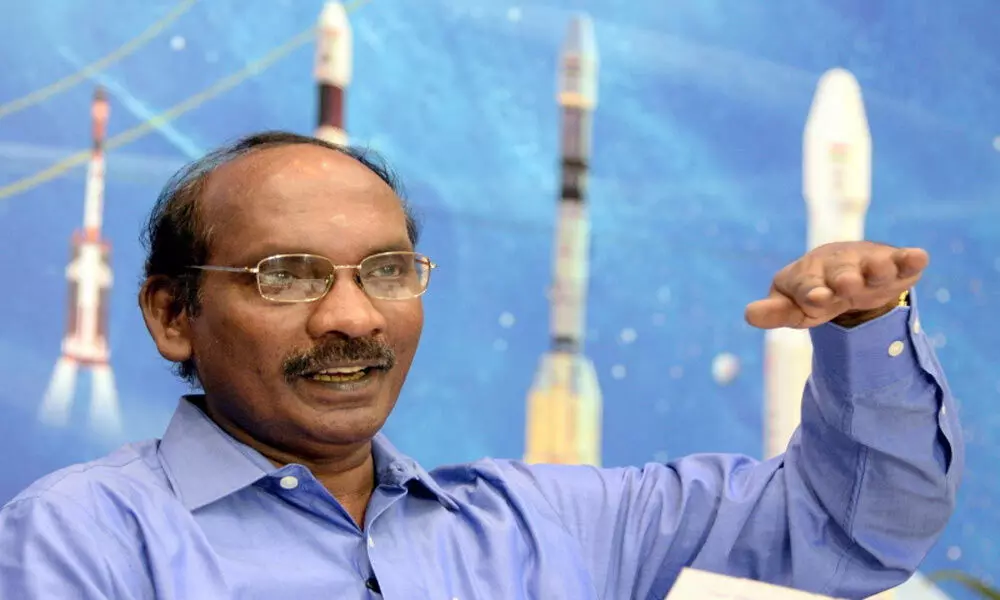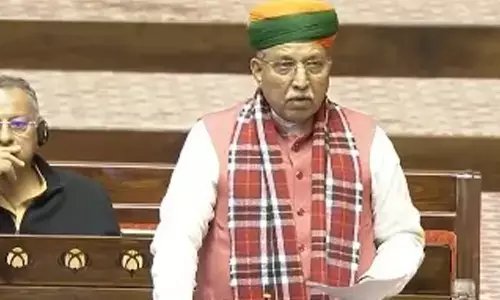New navigation policy on anvil, IN-SPACe to be separate vertical: ISRO chief
 ISRO Chairman K.Sivan
ISRO Chairman K.SivanThe proposed Indian National Space Promotion and Authorisation Centre (IN-SPACe), part of space sector reforms aimed at bringing in private sector participation, will be a separate vertical under the Department of Space (DOS), said ISRO Chairman K.Sivan on Thursday.
Chennai: The proposed Indian National Space Promotion and Authorisation Centre (IN-SPACe), part of space sector reforms aimed at bringing in private sector participation, will be a separate vertical under the Department of Space (DOS), said ISRO Chairman K.Sivan on Thursday.
The Indian Space Research Organisation (ISRO) chief also said a new Navigation Policy is also being proposed. Suitable changes in Remote Sensing Data Policy, as well as SATCOM policy, are also on the anvil as a part of aligning them to an open and inclusive space sector.
In an online address from Bengaluru, Sivan said the IN-SPACe as a separate vertical for permitting and regulating the activities of private industry in the space sector.
He said IN-SPACe will have its own directorates for technical, legal, safety and security, monitoring as well as activities promotion for assessing the private sector's needs and further coordination of the activities.
As to its structure Sivan said IN-SPACe will have a board and will have representatives from industry, academia and the government.
On Wednesday the Union Cabinet under the Chairmanship of Prime Minister Narendra Modi gave its nod for the setting up of IN-SPACe to promote private sector participation in the space sector while making ISRO to focus on research and development (R&D) of new technologies, exploration missions and human spaceflight programme.
According to the government, IN-SPACe will also provide a level playing field for private companies to use Indian space infrastructure.
The entry of the private sector in the space sector in a bigger way will create large job opportunities and prevent brain drain, the government said.
Sivan said the major reform measure is to enable the private sector including academia to carry out end-to-end space activities viz, building of rockets and satellites, owning satellites, providing launch services and providing space based services on a commercial basis.
Till now ISRO was the end-to-end player in the Indian space sector. With the government's decision to open up the space sector, the private sector can now play a larger role than being a component supplier, Sivan said.
Sivan also said ISRO will also share its technological expertise with the private parties.
According to Sivan, there was a need for a mechanism to allow the private sector taking into account the safety, security and also provide the ease of doing business.
He said private sector players will apply to IN-SPACe and the latter will process the application and its decision is binding on ISRO.
While it will take about 3-6 months for IN-SPACe to be in place, the private sector can send their applications to DOS.
As regards NewSpace India Ltd (NSIL), a public sector unit under DOS, Sivan said its role is being re-defined to transform the approach of supply driven model to demand driven model for space based services.
Sivan said NSIL will be strengthened and empowered to off-load operational activities of ISRO in the areas of launch vehicle and satellite production, launch services as well as space based services.
The NSIL will execute these activities through industry consortiums.
Sivan said this move will allow ISRO to allocate more time and resources for R&D endeavours.
The ISRO will continue to carry out its present activities with greater emphasis on development of advanced technology, missions and capacity building besides supporting private endeavours in space sector.














